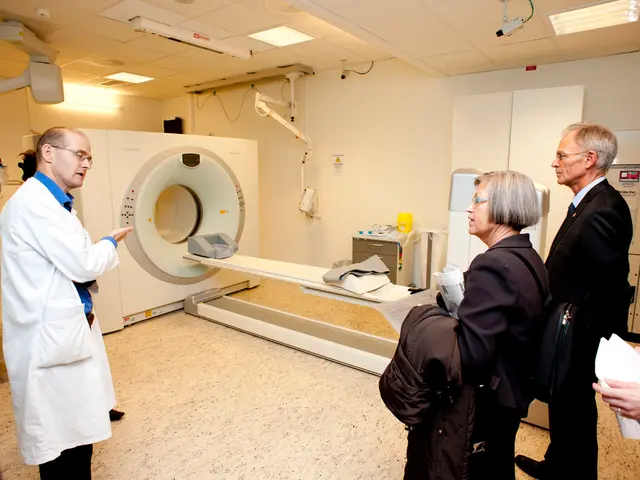Zinc Details: Advantages for Health, Nutritional Data, and Shortages Explored
In a world where maintaining good health is a top priority, the humble mineral zinc has emerged as a crucial player in our wellbeing. Known for its antioxidant qualities, zinc helps combat disease-causing free radical cells in the body, offering a host of potential long-term health benefits for adults.
At the heart of these benefits lies zinc's critical role in supporting immune function, reducing inflammation, promoting wound healing, and regulating various physiological processes such as hormone production and cellular repair.
One of the key advantages of long-term zinc supplementation is enhanced immune function. Zinc plays a vital role in both innate and adaptive immunity. In older adults, it can reduce the frequency of infections by improving immune cell function and reducing age-related immune decline. For instance, a study showed that 15 mg of elemental zinc daily in adults aged 55 to 87 significantly lowered infection rates and oxidative stress markers compared to placebo.
Another significant benefit is support for growth, DNA repair, and hormonal balance. Zinc is essential for creating and repairing DNA and regulating hormones, including those of the thyroid, which impacts energy metabolism and development.
Emerging research suggests that zinc may help slow the progression of age-related macular degeneration due to its antioxidant properties and high concentration in the retina. There is also some evidence linking zinc supplementation with a possible reduced risk of advanced prostate cancer, although more research is needed.
Certain populations may see particular benefits from zinc supplementation due to a higher risk of deficiency. These include people with gastrointestinal conditions, vegetarians or vegans, pregnant or breastfeeding women, and those with alcohol use disorder.
The recommended dietary intakes of zinc vary by age, sex, and physiological status. Adult males generally require about 11 mg/day, while females require about 8 mg/day, with increased needs during pregnancy and lactation. Older adults, especially those over 65, may benefit from zinc intakes at the higher end of the adult range or from supplements, given their increased vulnerability to zinc deficiency and immune dysregulation.
Maintaining adequate zinc levels either through diet or supplementation is crucial for supporting overall health and mitigating age-related immune and inflammatory decline. The best sources of zinc are beans, animal meats, nuts, whole grain or fortified cereals, dairy products, fish, and seafood.
However, it's important to note that the upper limit for zinc in adults is 40 mg per day, and high levels of zinc supplementation can cause gastrointestinal irritation, vomiting, copper deficiency, and impaired iron absorption. The zinc requirement for vegetarians may be higher than the recommended intake due to low bioavailability of zinc from plant-based foods.
In conclusion, zinc supplementation in adults can lead to long-term benefits such as improved immune responses, lower infection rates in older adults, better wound healing, antioxidant support for eye health, and potential hormonal regulation benefits. By understanding and addressing our zinc needs, we can contribute to our overall health and wellbeing.
- In the realm of science and health-and-wellness, zinc's antioxidant properties have shown to combat disease-causing cells, offering potential long-term benefits for mental health, fitness-and-exercise, and skin-care.
- Zinc plays a significant role in supporting various physiological processes, including immune function, growth, DNA repair, and hormone production, which can be crucial for therapies-and-treatments related to aging and development.
- Emerging research indicates that zinc supplementation might help slow the progression of age-related macular degeneration and potentially reduce the risk of advanced prostate cancer, depending on further studies.
- Certain groups, such as those with gastrointestinal issues, vegetarians, vegans, pregnant or breastfeeding women, and people with alcohol use disorders, may find greater benefits from zinc supplementation as they are more at risk of zinc deficiency.








